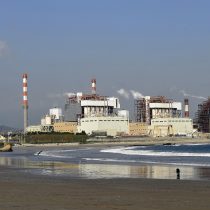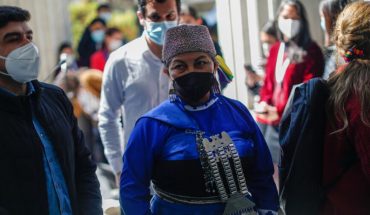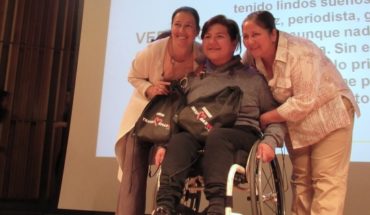
This Thursday, the International Federation of Human Rights (FIDH), together with its signatory member bodies, filed the first two legal actions in Chile and Colombia in international courts to do justice against polluting companies that violate human rights and contribute to climate change.
In Chile, the Citizen Observatory together with the Terram Foundation, with the support of the local organization Mujeres de Zona de Sacrificio en Resistencia, files an amparo action against the company AES Gener for the consequences of the pollution caused by the operation of coal-fired power plants, including massive poisoning of the population, and for the inability of the environmental authorities to adequately monitor their emissions in the Puchuncaví-Quintero area, in the Valparaíso region.
“Faced with the permissiveness of the State and the absence of a minimum due diligence of the companies responsible for the greenhouse gas emissions that cause climate change with serious impact on human rights, we have decided to resort to the courts as a last resort to prevent this from happening,” said José Aylwin, of the Citizen Observatory of Chile, which is part of FIDH.
Start of campaign
“#SeeYouInCourt (#NosVemosEnLaCorte) is not just a hashtag, nor a notice, nor just a campaign. It is the beginning of a series of actions that aim to denounce those harmful practices of companies that prevent tens of thousands of communities around the world from living in a healthy, safe, clean and sustainable environment,” the organization said in a statement.
The campaign will be launched this Thursday at 11:30 a.m. in an open Zoom where organizations from various countries will participate, including Aylwin, from the Citizen Observatory of Chile, and Katta Alonso, from the Organization of Women in Sacrifice Zones in Resistance of Quintero and Puchuncaví.
“Silver cannot do everything, nature is invaluable and its destruction causes perpetual and irreparable damage. To defend it is to denounce the social, economic and spiritual impacts that companies have caused through their destruction, putting at risk the survival of our people,” said Luis Misael Socarras Ipuana, a human rights defender and leader of the Wayuu communities of La Guajira, in Colombia.
Coordinated actions
It is not the first time that Observatorio Ciudadano is part of an international action. Last June, he was part of a lawsuit against the company SUEZ, based on the French law on the duty of vigilance, before the Court of Nanterre.
This after in July 2019, the population of Osorno, where the multinational owns 43% of the water distribution market, remained without water supply for 10 days, during which the health alert was decreed due to the contamination of the drinking water network caused by a new operational incident of ESSAL, company controlled by Suez. This occurred after continuous deficiencies and negligence were detected, which the Chilean control agencies had pointed out on multiple occasions, indicating the “high risk” posed by these anomalies.
For more than a year, FIDH has been launching coordinated legal actions against the multinationals involved or the States that grant them permits. This Thursday new actions are presented that they hope will be decisive.
A second action is presented in Colombia. The CAJAR – Collective of Lawyers “José Alvear Restrepo”, together with a group of local communities ask the IACHR -Inter-American Commission on Human Rights- for precautionary measures for the risk of irreparable damage caused by the diversion of the Bruno stream and the intention to exploit it to allow the expansion of the largest open-pit coal mine in Latin America, Carbones del Cerrejón belonging to the mining multinationals Anglo American, Glencore and BHP.
This operation has put at serious risk the survival of ethnic peoples in the area and has generated the destruction of the fragile tropical dry forest ecosystem, in the midst of a context of water and climate crisis.
“Permissiveness”
The campaign #SeeYouInCourt includes other actions on several continents and includes ongoing cases presented recently.
“It is not surprising that the first take place in South America, due to the enormous inequalities of the region and the historical legitimization of practices and policies that denose communities and put private corporate profit above social welfare.l and environmental. While the campaign focuses on business, states are also frequently responsible for encouraging, defending or turning a blind eye to abuses and injustices by companies,” the statement said.
To support the multiplication of legal actions against polluting companies, FIDH invites the general public to participate in the financing of new actions.
Through the multiplication of legal actions such as these, filed by the hand of communities affected by transnational corporations that destroy the planet and violate human rights “in total impunity”, the campaign seeks to obtain reparation and advance in the international struggle for the recognition of the right to live in a healthy environment, contributing to correct a blind spot of climate and environmental policies: corporate responsibility.
Protecting the planet
“Protecting the planet and fighting the climate crisis are two of the greatest challenges of our time. States must listen to the demands of communities so that the human right to a healthy environment is recognized and companies are regulated for the impacts of their operations,” said Alice Mogwe, FIDH President.
The launch of the #SeeYouInCourt” campaign comes at a time of decisive debates in international bodies – the United Nations and COP26 – on the environmental crisis. It is a way to participate in the decisive deadlines that will mark the end of 2021, and to influence the debates.
“Local communities are not passive victims: they play a unique role in protecting their rights and territory from harm that is ultimately likely to affect the entire population. FIDH accompanies them in litigation and amplifying their voice, silenced for centuries. The outrage of these communities echoes that of the entire planet in the face of the destruction of the environment,” the statement said.
“Environmental disasters, climate change, conflicts over natural resources and food depletion have direct consequences for the right to health, the right to water, the right to food, the right to housing and, in general, the right to a dignified life. For this reason, FIDH is firmly committed to the recognition and defence of the right to a healthy environment as a ‘new’ human right in its own right, he concludes.
*Signatory FIDH member organisations:
· CAJAR – Collective of Lawyers “José Alvear Restrepo” – Colombia
· Citizen Observatory – Chile





